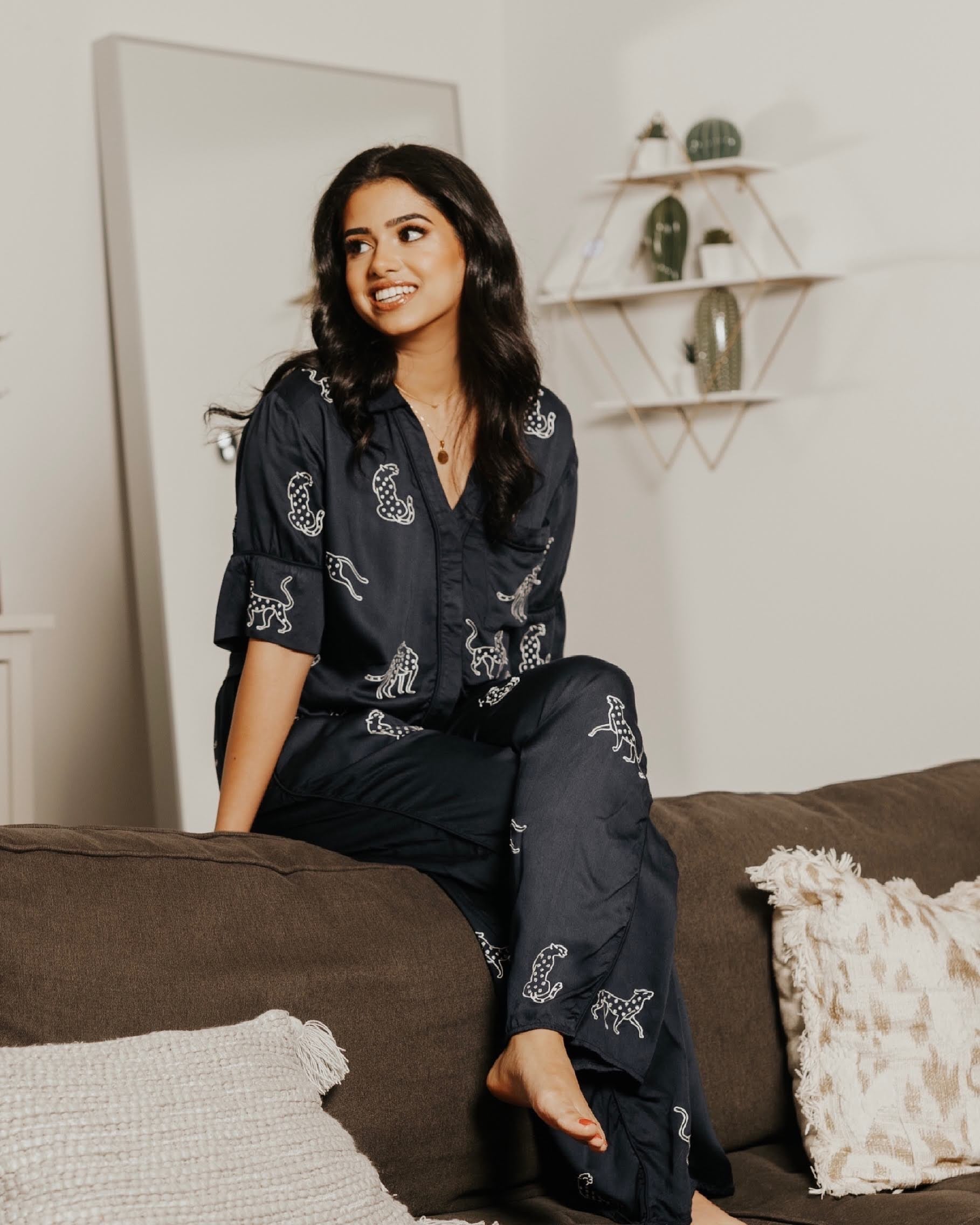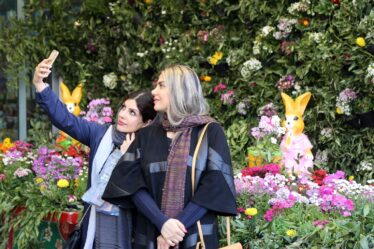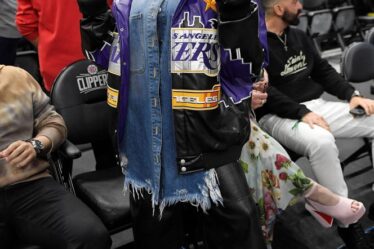
Fashion is synonymous with self-expression, and Niki and Ritika Shamdasani created an entire clothing brand out of their need to feel seen in the fashion industry. When a search for outfits to wear to an Indian wedding left them empty-handed, the sisters set to work creating their own fashion brand tailored to their personal styles. Sani, an abbreviated version of their last name, is a formalwear brand inspired by their South Asian culture. From the age-old dilemma “I have nothing to wear,” the sisters created a sustainable clothing company that blends culture and community.
“What we found on TikTok was not just an Indian American community. It was a community interested in the culture as whole.”
“We didn’t have a huge community of Indian Americans or South Asian Americans,” Niki tells POPSUGAR of being born and raised in Fayetteville, NC, after their parents emigrated from India. Growing up in their small, predominately white hometown, the Shamdasani sisters felt out of place. It wasn’t until a family wedding sent them searching for traditional South Asian wedding guest outfits that they realized the importance of making South Asian clothing available to Western consumers.
Inspired by their personal dilemma, the sisters created a line of wedding-specific formalwear. “For us, it just made so much sense to start off in this category, bring everyone into the culture in a way that hadn’t been done before, in a way that felt accessible and approachable,” Niki says.
They’ve seen their biggest success on TikTok. On the platform, the sisters maintain a dedicated fan base that has made their business “100 times stronger than before” and influenced the way they evolve their company. “What we found on TikTok was not just an Indian American community,” Ritika says. “It was a community interested in the culture as whole.” In growing their following on TikTok, the Shamdasani sisters, now known as the Sani sisters, hope to turn conversations about appropriating culture into conversations about appreciating culture. “There’s so much about [South Asian fashion] that has been taken away and removed from its context, and we want to bring that context back into the clothing,” Ritika says.
Their efforts have clearly paid off. In 2020, Sani became the first South Asian brand to appear on Rent the Runway and sold out in just 48 hours. This April, they hit another major milestone. “We’ve officially launched South Asian fashion for the first time at Nordstrom,” Ritika says.
Image Source: Justin Eisner
When Sani was first founded, Niki was pursuing a career in consulting and venture capital while Ritika was still in high school, making the decision to colead a fashion company unprecedented. “Fashion, I think, for both of us, was very much a 180 in terms of the industries we expected to be in,” Ritika says.
Luckily, the pair inherited the entrepreneurial spirit from their parents, who’ve been operating a family business for decades. Between balancing school and work, the sisters also juggled business responsibilities: design, marketing, and production. The experience, they say, has brought them closer together, teaching them how to “productively disagree” and operate in line with each other’s working styles — and earn a spot on Forbes’s 2023 30 Under 30 list.
“We really want to be a lifestyle brand that’s intersecting everywhere that culture intersects.”
Together, the duo hand-select the embroidery, beading, and cutwork for all their new pieces — which they create with the help of women-owned manufacturing partners in India — taking care to consider functionality as well. (For example, many of their designs include pockets). One piece, in particular, even features a detachable langa — a traditional dress worn in South India — for ease when dancing at weddings. Another upcoming look, dubbed “Not Your Nani’s Nighty,” is a comfortable yet chic design inspired by their grandmother’s nightgown.
In addition to creating functional clothes, Niki and Ritika try to ensure that the workers they partner with have safe working conditions. They also use deadstock materials to create their formalwear, make made-to-order pieces to avoid inventory waste, and produce their casualwear in small batches. “At the end of the day, it’s about how can we be as responsible a brand as possible,” Niki says.
As their brand continues to evolve, the sisters hope to turn Sani into a one-stop shop for destination weddings by introducing more casual pieces into their collection, including matching sets, pants, and skirts. “It’s all about what are the stories we can tell behind each product,” Niki says. Beyond fashion, they plan to grow Sani into a 360-degree brand that celebrates South Asian culture through food, music, and “every way culture intersects with society.” Ritika adds, “We really want to be a lifestyle brand that’s intersecting everywhere that culture intersects.”



